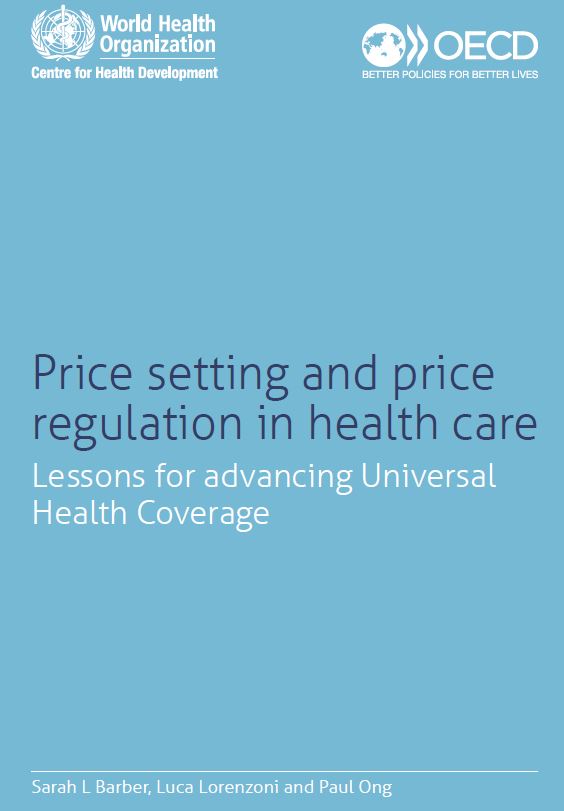New WKC-OECD Study released

The WHO Centre for Health Development in Kobe (WKC) and the Organisation for Economic Co-operation and Development (OECD) have released a novel study on price setting and price regulation in health care to support countries to accelerate progress towards universal health coverage (UHC).
Researchers completed case studies from nine settings*to generate lessons learned in prices setting and regulation, particularly for low and middle-income countries, and to identify areas for future research.
“Pricing and payment are important policy tools to move towards UHC. Pricing policies send a clear message to practitioners and patients about what healthcare services are to be delivered and how much healthcare providers are to be paid optimally. Where prices are set too high or too low, health care providers may compensate by providing additional unnecessary care or insufficient quality,” said study co-ordinator and WKC Director, Dr Sarah Barber.
In comparing the ways in which prices are set, the study found that unilateral price setting by a regulator eliminates variation in prices unrelated to quality and helps to reduce the growth in healthcare costs, compared with individual price negotiations between health insurers and health service providers. Although many of the case studies focused on developed health care settings, all policy makers continue to strive to use prices as a means to provide incentives for drive quality, efficiency and health outcomes.
For instance, most of the countries studied adjusted their prices for health care providers in rural and remote areas, or those treating disproportionately high numbers of low-income or high-cost patients to ensure fair coverage and access. In Japan, the Republic of Korea, Germany, Malaysia, and Thailand, providers are prohibited from charging prices higher than the regulated prices. This protects people from unexpected out-of-pocket costs at the point of payment.
The research is particularly valuable for low- and middle-income countries that are increasing their public funding to health. Lessons learned include the need to invest in data infrastructure and institutional capacities which can generate context-specific evidence to guide policies, planning implementation changes in sequence, using prices to drive health policy goals, and setting up monitoring and evaluation systems to identify modifications needed to attain health objectives.
This unique work will be of interest to policy makers and researchers working on health systems and universal health coverage. It can be downloaded from the WKC website: https://extranet.who.int/kobe_centre/en/project-details/Price_setting_health_care
*Australia, England, France, Germany, Japan, Malaysia, Republic of Korea, Thailand, United States of America (and the State of Maryland)

